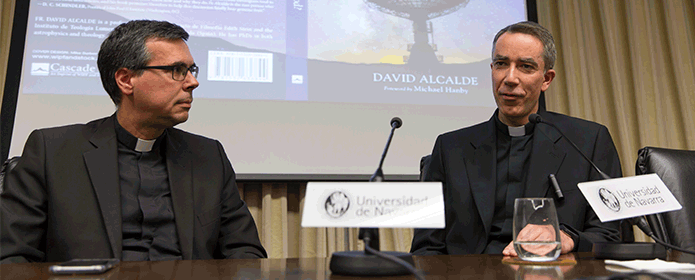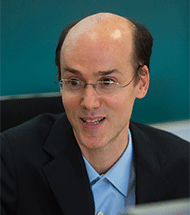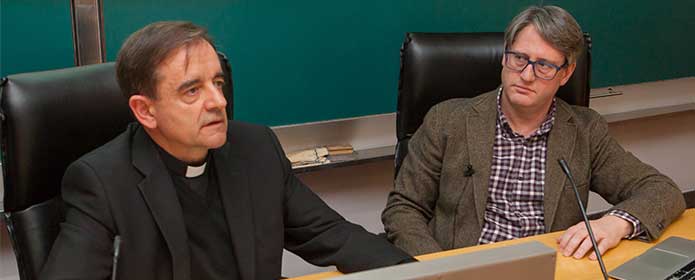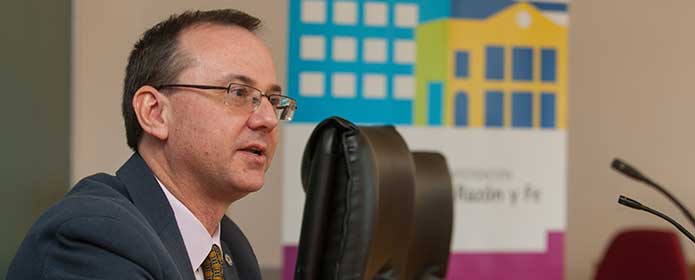"If the dialogue between faith and science is to be fruitful, it is absolutely necessary to affirm the inevitable relationship of nature to God."
David Alcalde, professor at Philosophy Edith Stein Institute and Lumen Gentium Institute of Theology, participated in the December seminar of group CRYF.

"If the dialogue between faith and science is to be fruitful, it is absolutely necessary to affirm the inevitable relationship of nature with God and, therefore, the intrinsic relationship of science and theology". This is what David Alcalde, professor of the Institute of Philosophy Edith Stein and the Institute of Theology Lumen Gentium, both institutions of the Archdiocese of Granada, said at the University of Navarra. His words are part of the December seminar of the group 'Science, Reason and Faith' (CRYF), focused on 'The problematic neutrality of the scientific method'.
Professor Alcalde recalled in his message that some deficient ideas about God and nature are often implicitly assumed by many participants in the dialogue between faith and science and prevent a real communication between science and theology.
He further explained that an almost unanimous budget among participants in the dialogue between faith and science is the existence of a scientific method that is neutral with respect to metaphysics and theology: "It is assumed that the scientific method is oblivious to metaphysical and theological considerations. However, the acceptance of the neutrality of the scientific method entails a number of metaphysical and theological presuppositions that are flawed."
Among these presuppositions he emphasized the indifference of nature with respect to God. "This would imply that God can only relate extrinsically to nature. Theological extrinsicism is problematic because it falsifies and reduces the idea of God and the idea of nature," he said.
David Alcalde Morales holds a doctorate in Sacred Theology from the Pontifical high school John Paul II for programs of study on Marriage and the Family, Washington, D.C., headquarters since 2017. He has been a diocesan priest of the Archdiocese of Granada since 2008. Previously, he obtained the doctorate in 2002 in Physical Sciences, specialization program Astrophysics, from the University of La Laguna. He has extensive experience in research astrophysics and his area of interest is the relationship between theology, metaphysics and science, as demonstrated in his recently published book Cosmology Without God?: The Problematic Theology Inherent in Modern Cosmology.



